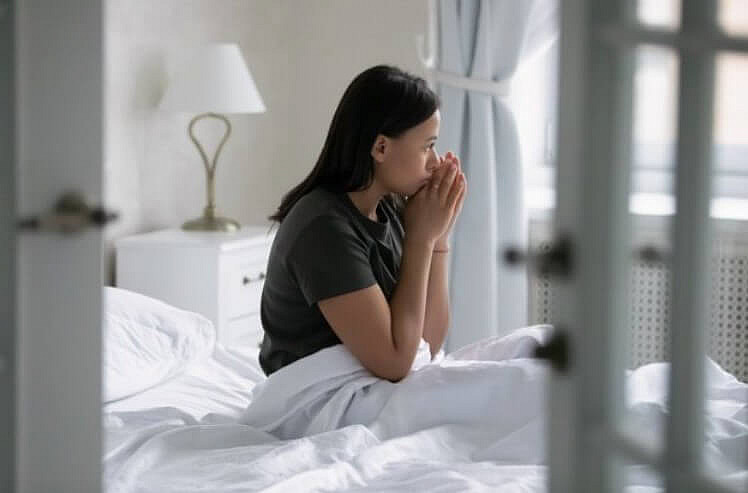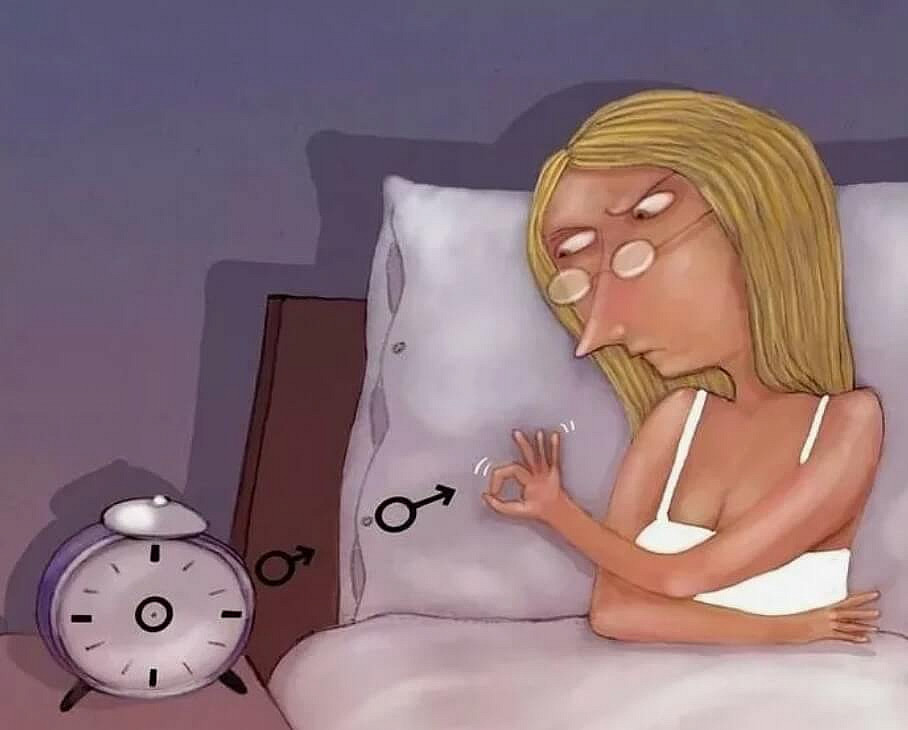Morning anxiety

Research in recent years has shown that the release of the stress hormone cortisol in our body obeys circadian rhythms. Normally, cortisol levels fall to a low of 19 to 20 hours in a healthy person. At night, cortisol awakening response (cortisol awakening response) is called light hours
What happens in a person suffering from insomnia or an anxiety disorder? The so-called "stress" system - the hypothalamic-pituitary-adrenal axis, which provides the production of cortisol, that is, his nervous system is in a state of constant excitation. These people have difficulty falling asleep in the evening because of high cortisol in the blood. Then they finally fall asleep, but as soon as their sleep pressure decreases, the person wakes up again and cannot sleep any more, as cortisol is again at its peak
Anxiety neurosis: causes and manifestations
Anxiety neurosis is a mental disorder in which a person is continually experiencing abnormal stress, anxiety, and fear for no apparent reason. This condition is also known as generalized anxiety disorder (GTR) and is classified in the International Classification of Diseases (ICD-10).
Although generalized, anxiety can have specific triggers. These include work-related problems, conflicts with loved ones, frightening news, the current pandemic, and fear of illness.
- Physiologic triggers also may play a role in
- Hormonal changes (such as during pregnancy or the menstrual cycle) or thyroid or adrenal abnormalities
- Excessive physical or mental exertion
- Chronic disease with a poor prognosis and other factors
Any of these triggers can lead to sleep disturbances and severe arousals from sleep.
What to do before going to bed?
Gadgets need to be turned off
Today, this is one of the main causes of stress. Constant notifications distract from work, rest and sleep. However, important messages rarely come out of hours. So before going to bed, turn off the sound on all devices and move them away so that even the light of the screens does not interfere. The blue light from the screens suppresses the production of melatonin, a hormone needed for quality sleep.
Prepare things and clothes for the morning
The morning turmoil can ruin the mood of even the quietest person. Therefore, it is better to prepare for it in advance. Documents, belongings and clothes must be collected from the evening so that in the morning you can quickly get dressed and go out.
- Relieve the past day's tension
Sleep and psychotherapy experts recommend that all activities be stopped an hour before bedtime. Relaxing yoga postures, a warm bath, deep breathing and meditation will help to relieve tension and prepare for a quiet sleep.
Relax the brain
Try to play games for the mind and memory. For example, think of all breeds of dogs or walk mentally through a familiar room. You can also remember only the good moments of the day and relive them again. If there are no such moments, remember any other joyful moment from the past.
- How to start the morning correctly?
Do not check your work email immediately after waking up
It's best to wait until the workday starts or even later to reply to important emails. Avoid the temptation to check the phone immediately after waking, so as not to disturb the mode and not succumb to stress.
Use breathing exercises to relax
Deep, slow breathing through the abdomen (4 accounts for inspiration and 4 accounts for expiration) can help reduce anxiety. This method can be used at any time of the day, especially when stressed.
- Morning workouts or stretching
For some people, morning workouts are a great way to cheer up and tune in to the workday. If you have the opportunity, allocate 10 minutes for stretching or light charging.
Walking before work
Walking outdoors helps to clean up your mind and adjust to a productive day. If you have such an opportunity, be sure to use it.
- Recognize your emotions
If you feel anxious or anxious, do not try to ignore these emotions. Accept them as part of yourself and try to understand what causes these feelings. This will help reduce stress and strain.

When should I see a doctor?
Counseling may be helpful once anxiety is no longer isolated. Even if this happens rarely, it may indicate that there are unsolved problems, and the therapist can help you find an approach to solving them.
If mental health problems start to progress, a psychiatrist and drug treatment may be needed.
The examination may reveal that the cause of the anxiety disorder is not related to the psyche but is the result of a disorder that needs to be treated by the appropriate specialist.

